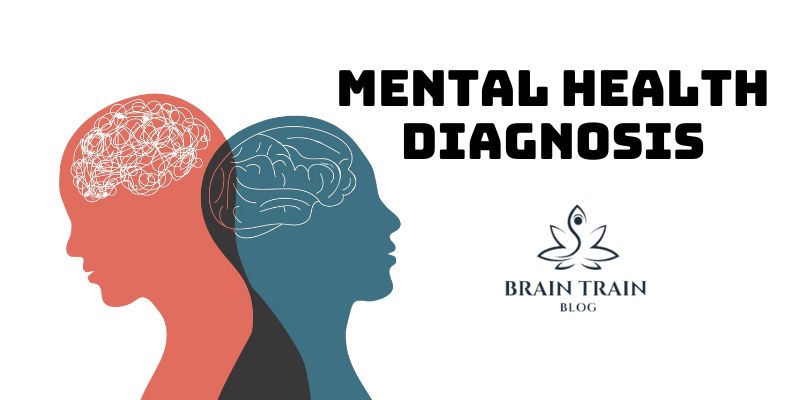Mental health is an essential aspect of a person’s overall well-being, influencing how we think, feel, and act. A mental health diagnosis is the process through which medical professionals assess whether an individual is experiencing a mental health disorder and, if so, what type of disorder it may be. Early diagnosis and treatment can significantly improve outcomes, allowing individuals to manage their symptoms and lead fulfilling lives.
What is Mental Health Diagnosis?
A mental health diagnosis refers to the identification of mental health disorders based on symptoms and behaviors exhibited by the individual. It involves a thorough evaluation by a healthcare provider, typically a psychiatrist or psychologist, who reviews medical history, conducts interviews, and uses standardized tools to determine the presence of any mental health conditions. These conditions can range from anxiety and depression to more complex disorders like schizophrenia.
The Diagnostic Process
The process of mental health diagnosis typically involves several steps to ensure that the correct diagnosis is made. This ensures the most appropriate treatment plan is developed. The key stages include:
- Clinical Examination: The healthcare provider will conduct a general physical examination to rule out any underlying physical causes for the symptoms, such as thyroid problems or neurological issues. Blood tests or imaging may be used to further understand the condition.
- Psychological Evaluation: A critical part of the mental health diagnosis process, this involves interviews with the patient to discuss their emotional and psychological state. The healthcare provider will inquire about the symptoms, behavior, and thoughts the individual is experiencing.
- Use of Diagnostic Tools: Most professionals follow guidelines like the DSM-5 (Diagnostic and Statistical Manual of Mental Disorders), published by the American Psychiatric Association, which outlines the diagnostic criteria for various mental health disorders. The DSM-5 helps ensure consistency and accuracy in the diagnosis of mental health conditions.

Common Mental Health Disorders
Mental health diagnoses can cover a wide range of conditions, and each disorder has its unique set of symptoms. Here are some common types of mental health disorders:
- Anxiety Disorders: These include generalized anxiety disorder, panic disorder, and obsessive-compulsive disorder (OCD), all of which involve excessive worry, fear, or anxiety that interfere with daily functioning.
- Mood Disorders: Conditions like depression and bipolar disorder, which affect an individual’s mood, causing extreme feelings of sadness or irritability.
- Eating Disorders: Disorders such as anorexia and bulimia are characterized by unhealthy eating habits and extreme concern with body image.
- Personality Disorders: This includes borderline personality disorder and antisocial personality disorder, where individuals exhibit enduring patterns of thought and behavior that can be harmful to themselves or others.
- Severe Mental Illnesses: Disorders like schizophrenia, where individuals may experience a disconnection from reality, including hallucinations or delusions.
Common Symptoms That May Indicate a Need for Diagnosis
A mental health diagnosis is typically sought when someone exhibits one or more of the following symptoms:
- Persistent feelings of sadness, hopelessness, or depression.
- Difficulty concentrating or having unclear thoughts.
- Excessive worry, fear, or panic attacks.
- Major changes in eating habits or sleeping patterns.
- Feeling disconnected from reality (such as hallucinations or delusions).
If you or someone you know is experiencing any of these symptoms, seeking a mental health diagnosis as soon as possible is crucial for proper treatment and management.
The Importance of Early Mental Health Diagnosis
Early identification and mental health diagnosis are critical for several reasons. When mental health issues are detected early, treatment can begin promptly, increasing the likelihood of effective management. Many mental health disorders are treatable through therapies such as cognitive-behavioral therapy (CBT), medications like antidepressants or antipsychotics, and social support. Early treatment can also help prevent the worsening of symptoms and improve long-term quality of life.
Moreover, getting an early mental health diagnosis can provide individuals with a sense of understanding and relief, as they gain clarity about what they are experiencing. With proper guidance and intervention, many people with mental health conditions can lead productive and fulfilling lives.
6. Conclusion
A mental health diagnosis is the first step in managing and treating mental health disorders. Through clinical evaluations, psychological assessments, and the use of diagnostic criteria such as the DSM-5, healthcare professionals can identify the underlying causes of mental health symptoms and recommend appropriate treatment plans. Early diagnosis is essential for achieving better outcomes, as it allows for timely intervention and personalized care. If you or someone you know is struggling with mental health issues, seeking professional help for a mental health diagnosis can lead to the appropriate treatment and support needed to manage the condition effectively.
By understanding the importance of a mental health diagnosis and recognizing the signs of mental health disorders, individuals can take proactive steps toward improving their well-being and quality of life.
